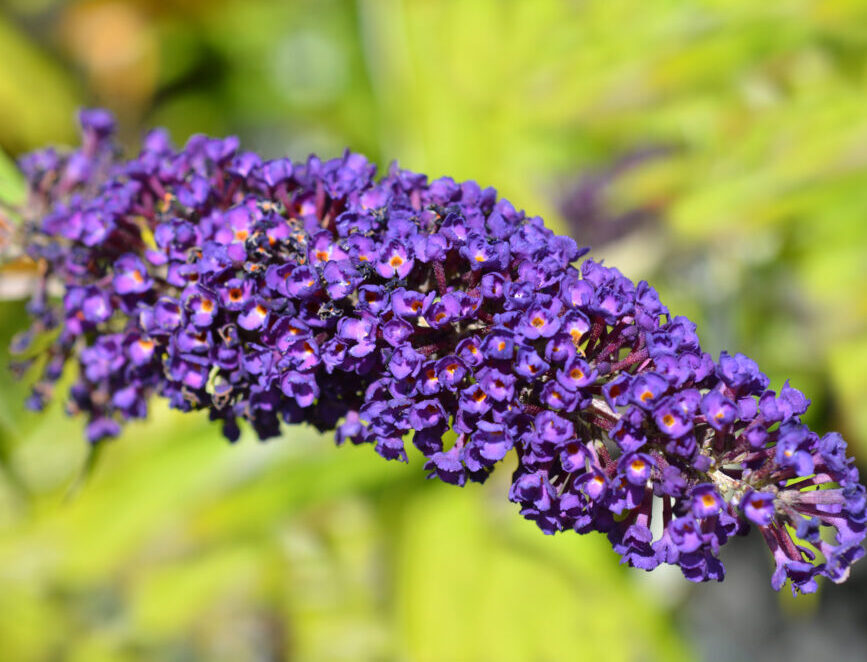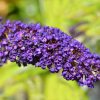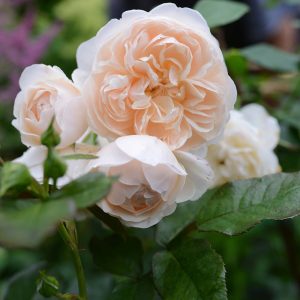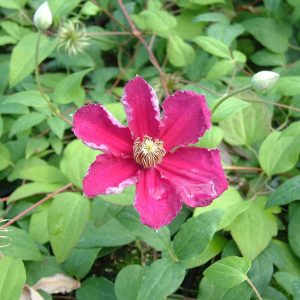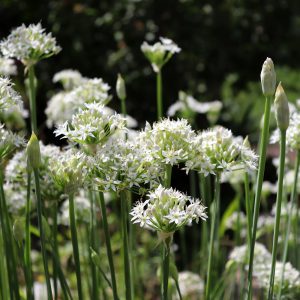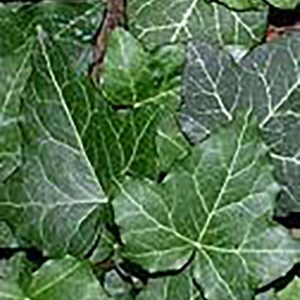Description
Buddleja or Buddleia is a genus containing around 140 species of shrubs and trees, with the largest member reaching around 30m in height. Known as butterfly bush due to the nectar rich flowers produced in Summer which are highly scented and attract loads of butterflies! Most Buddleja found in the UK are hardy such as Buddleja davidii and Buddleja globosa, but there are some less common species that are from more tropical areas in South and Central America that cannot withstand frost.
Key Facts
- Common Name(s):Butterfly bush ‘Empire Blue’
- Hardiness:Fully hardy
- How big will I get? Buddleja ‘Empire Blue’ can grow to a height of 2m and a spread of 1.5m.
- Did You Know That:Buddleja are named after the Reverend Adam Buddle?
Plant Calendar
A rough guide to how this plant will change through the year.
| Jan | Feb | Mar | Apr | May | June | July | Aug | Sept | Oct | Nov | Dec | |
| Flowering Time |  |
 |
 |
|||||||||
| Foliage Colour |   |
  |
  |
  |
  |
  |
  |
  |
  |
| J | F | M | A | M | J | J | A | S | O | N | D |
 |
 |
 |
|||||||||
  |
  |
  |
  |
  |
  |
  |
  |
  |
Care Guide

Soil Requirements
Buddleja ‘Empire Blue’ prefers moist but well-draining soil. This plant can grow in soil with a wide range of pH levels, it is not picky about the pH level of the soil.

Best Position
Buddleja ‘Empire Blue’ can handle either an exposed or a sheltered position and can cope with either full sun or partial shade.

Maintenance
Buddleja ‘Empire Blue’ flower on fresh growth and therefore benefit from being cut back hard in early Spring removing almost all the previous years growth and buildling a low woody framework of branches from which the plant can regrow. This prevents you from having large woody sections of the plant that produce very few flowers, with flowers only produced right at the top of the plant.

Pest, Diseases and Wildlife
Buddleja ‘Empire Blue’ can have problems with caterpillars, and it tends not to have problems with diseases. It is also known to attract bees, butterflies and other pollinators. It is not considered to be toxic.
